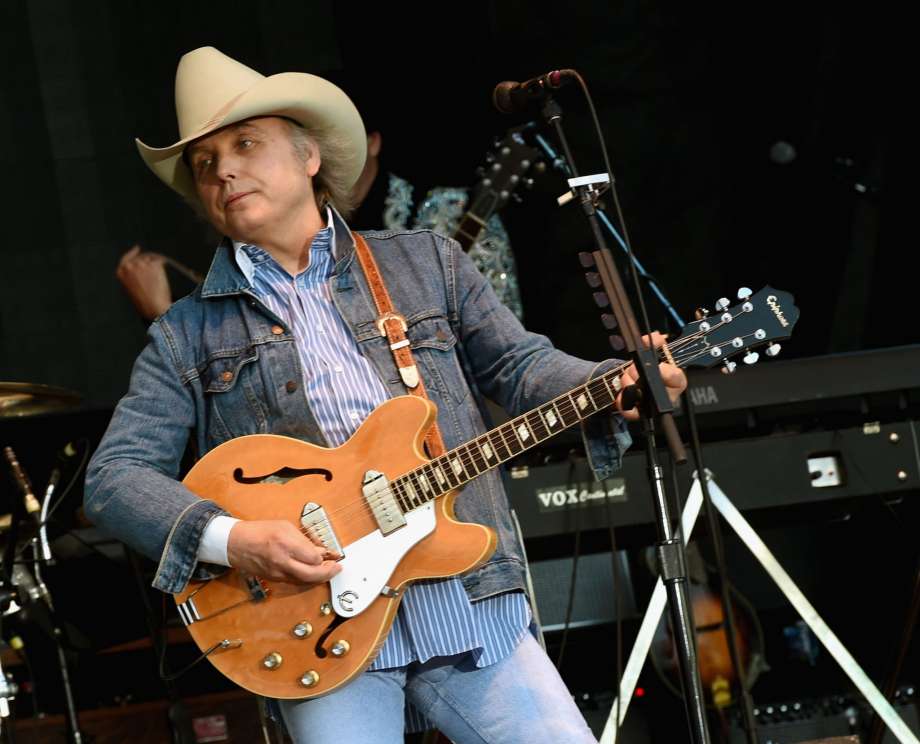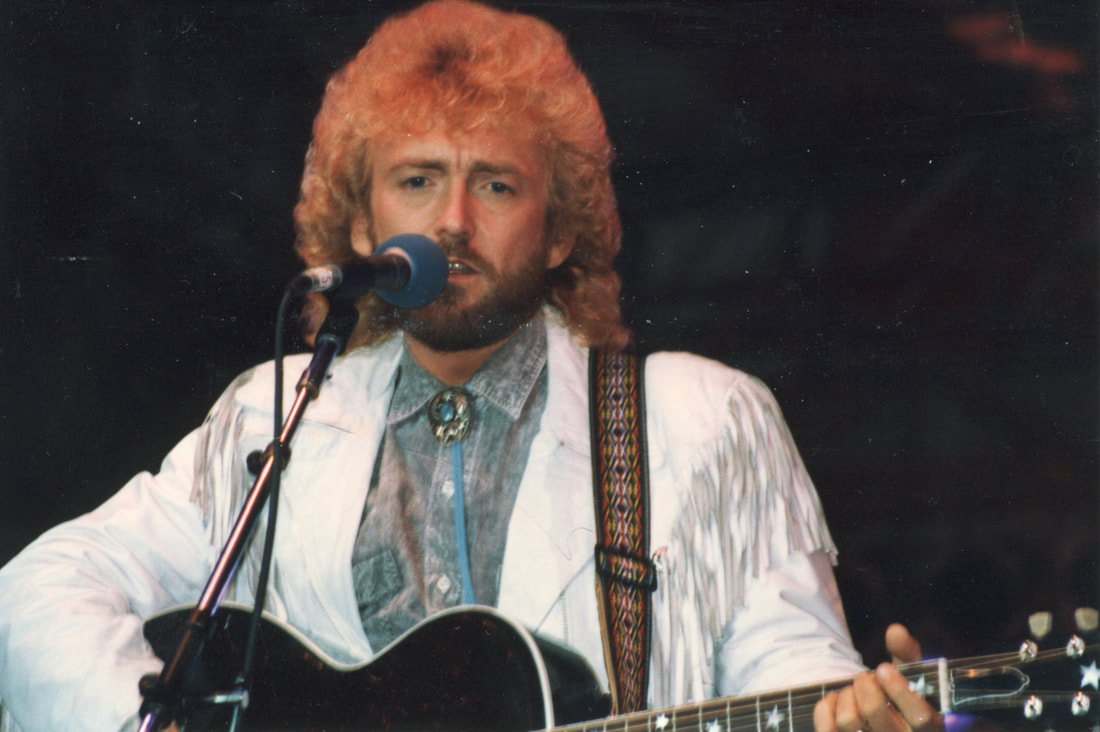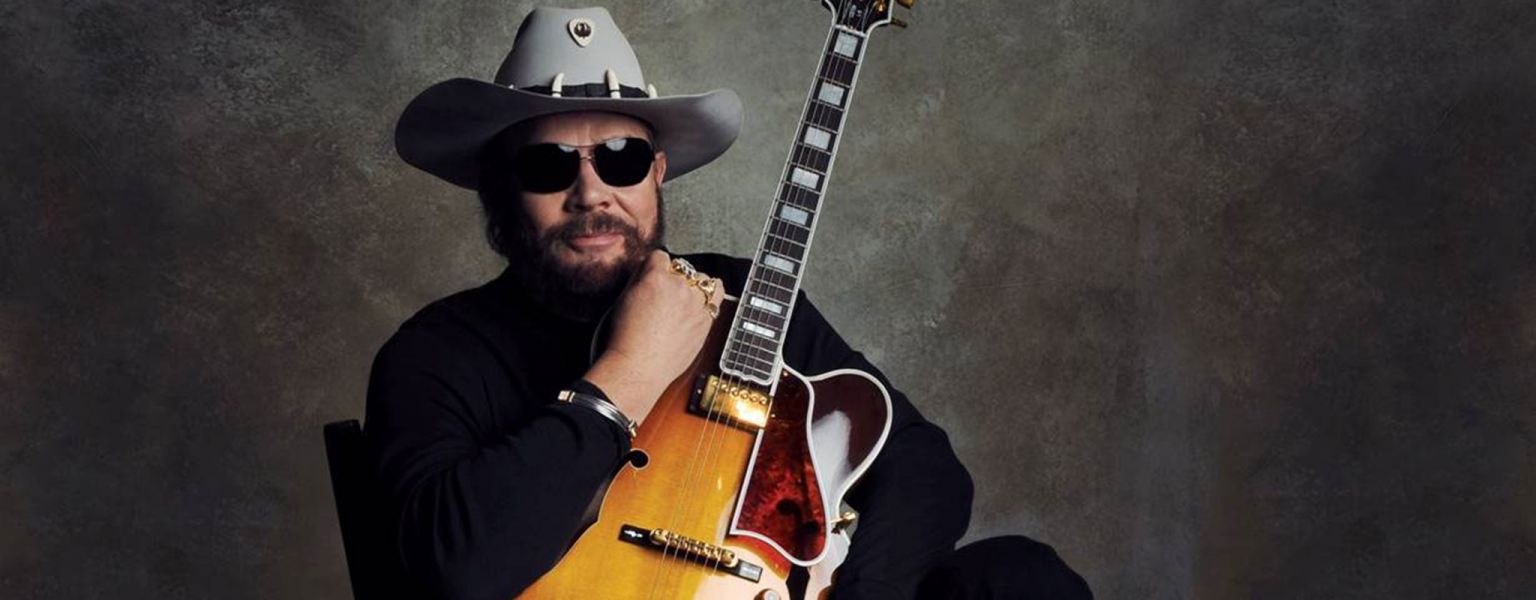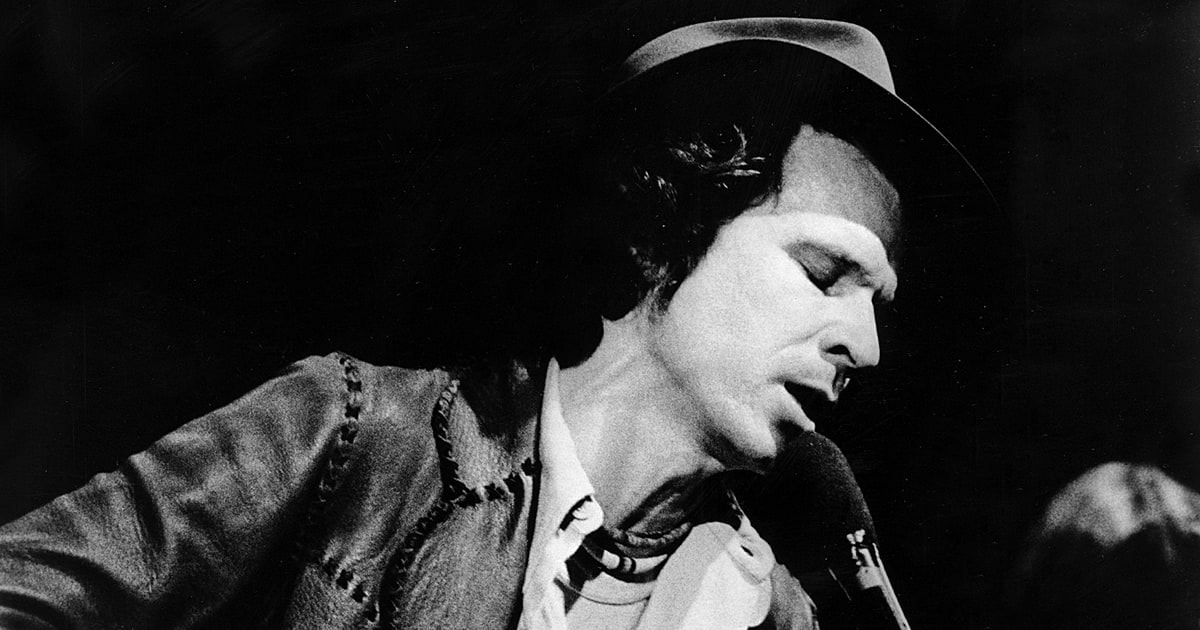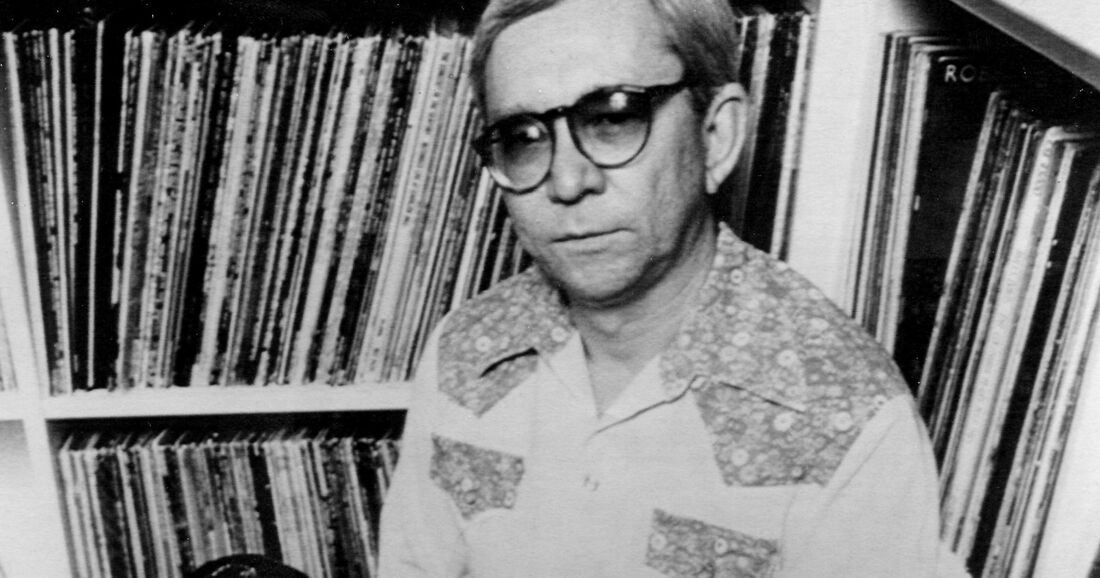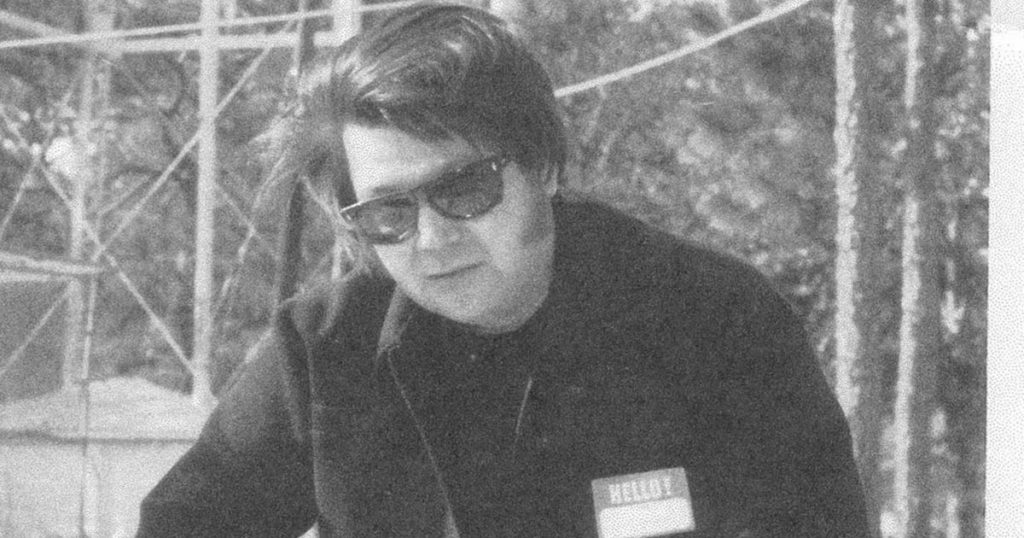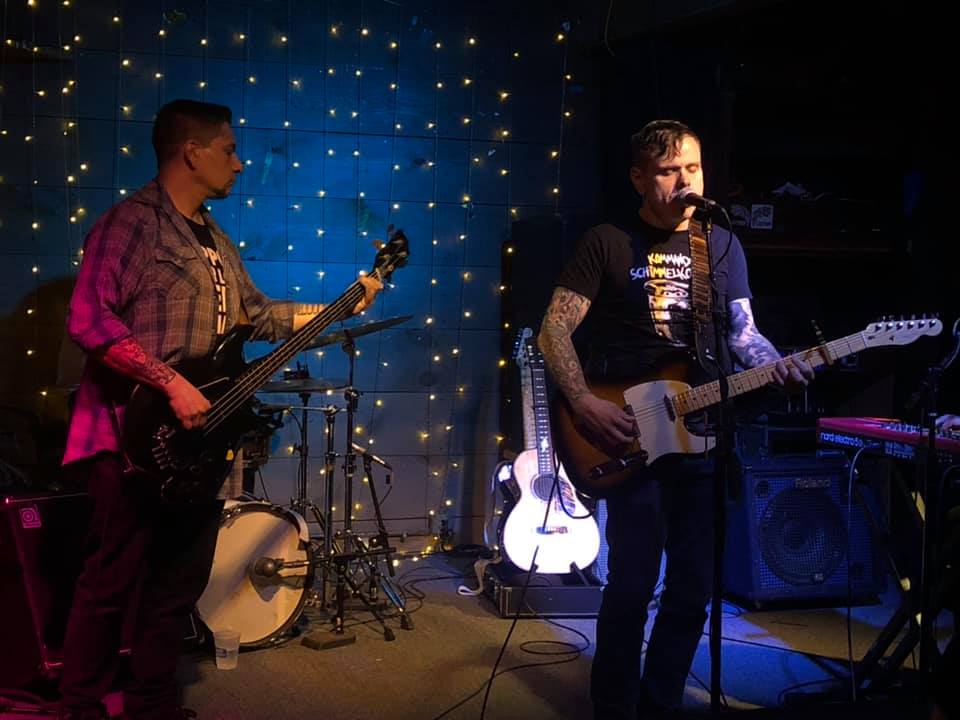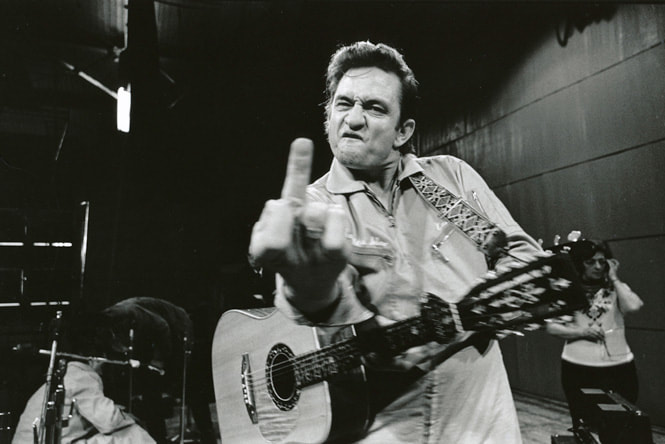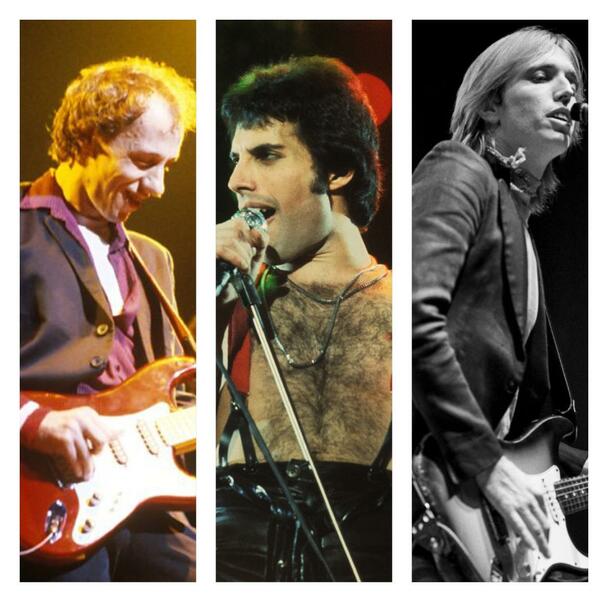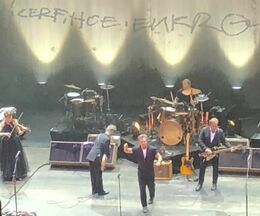 by Julian Spivey John Mellencamp brought his road show to Memphis’ legendary Orpheum Theater on Sunday, March 17 for a show that featured a ton of hits, some lesser known gems and proof that the Rock & Roll Hall of Famer hasn’t missed a step at 67. Uniquely Mellencamp’s show began with a 25-minute opening film that gave biographical information about the Indiana native and essentially told why he does what he does. It’s something I’ve never seen from any other artist and while it was interesting, ultimately, I believe it was unnecessary and it seemed to leave many in the audience twiddling their thumbs and definitely had folks around my seats holding conversations over it, making it hard to hear at times. The opening film would be the only down point of the show. Once the music began with Mellencamp and his talented band performing “Lawless Times,” off his 2014 album Plain Spoken, it was a fun event for all from there on out. One of the early high points of the show was Mellencamp’s performance of his 1986 top-10 hit “Small Town,” which is one of my all-time favorites from the heartland rocker. For me the song is essentially Mellencamp’s theme song and encompasses what he and his music is all about, bringing that heartland, hardworking, small town American life to life via song. Mellencamp doesn’t speak much throughout his show and is able to run through a 20-song set in just 90 minutes, which is an impressive feat. But when he does speak, he’s both incredibly honest and funny. The first time he spoke, a few songs into his set, he told the audience that they were going to hear some songs they know and some they don’t, some to sing along and dance to and others that are quiet and to please not yell and scream during the quiet ones. He claimed, he understood because he used to be that guy, but if you had to just go out in the hall and do it. He used a bit more colorful language while going through his spiel. Among the surprising bits of the show were old-timey covers of Robert Johnson’s “Stones in My Passway,” which he recorded for his most recent album Other People’s Stuff, and a sing along with the audience on Louis Armstrong’s “Long Gone (From the Bowlin’ Green),” which he would reprise a bit later to end his show. Mellencamp would pump up the crowd with performances of some of his greatest hits in “Lonely Ol’ Night” and “Check It Out” before telling his best story of the night, which I’d previously heard before on either a televised performance or interview, but was still terrific about how his 100 year old grandmother prayed with him one day and told the lord that she and Buddy (her nickname for Mellencamp) were “ready to come home.” Mellencamp responded with the slip of the tongue: “Grandma, what the fuck?” She then gave him some great advice about growing old and making the best of life by saying: “life is short/even in its longest days.” The story led into “Longest Days” from his 2008 album Life, Death, Love and Freedom. It was one of his best vocal performances of the night. Mellencamp then launched into an acoustic version of crowd favorite “Jack & Diane,” which he allowed the audience to take the lead on the chorus with the sounds of a sold out audience singing “Oh yeah, life goes on …” in unison rising to the top of the beautiful old cathedral of music. It’s a moment all Mellencamp fans can rejoice in and understand that no matter who you are or what you believe are sharing this great moment together. Mellencamp’s unbelievably talented violinist Miriam Sturm and accordionist (who also played beautiful piano) Troye Kinnett followed with an excellent instrumental, which included portions of some of Mellencamp’s hits he wouldn’t get to during the night. Once Mellencamp returned to the stage following this instrumental it would be nothing but classic hits for the remainder of his set – no doubt the most fun part of the evening and a great way to send the sold out audience home smiling ear-to-ear. He kicked off this portion of his show with a terrific performance of “Rain on the Scarecrow,” which has sort of become the Farm Aid anthem for the downtrodden American farmer with Mellencamp being on the board of directors for the event he helped to start with Willie Nelson and Neil Young in the ‘80s. Mellencamp would continue with rocking performances of “Paper in Fire,” “Crumblin’ Down” and “Authority Song,” which all had the audience on their feet and grooving along with the music. Mellencamp even showed off some moves of his own when he threw a sing along portion of Wilson Pickett’s “Land of 1000 Dances” into the middle of “Authority Song.” “Authority Song” may include Mellencamp’s all-time greatest verse: “I call up my preacher/I say: ‘Gimme strength for round five/He said: ‘You don’t need no strength, you need to grow up, son’/I said: ‘Growing up leads to growing old and then to dying/And dying to me don’t sound like all that much fun.” It’s even better when you get to see him perform it live and scream it along with him. Mellencamp would finish his fantastic night of music with the one-two punch of “Pink House,” his 1983 Grammy-nominated track that I believe is his career best, and “Cherry Bomb,” his 1987 nostalgic top-10 hit that really makes for a fun way to send an adoring audience home. Mellencamp’s Orpheum show on Sunday night was truly everything a fan of his could possibly ask for.
2 Comments
The Country Music Hall of Fame typically announces its new class of inductees around the end of March every year. I thought it would be fun to gather some of my favorite (and best) country music bloggers on the Internet to come up with our own class of inductees and publish our fictional ballots for such a class giving reasoning to why we’ve made our picks. The Country Music Hall of Fame inducts three people annually, one in each category of Modern Era, Veterans Era and Non-Performer, and while I personally don’t agree with this way of selecting hall of famers (I’d prefer a percentage of votes to be inducted like the Baseball Hall of Fame does) we’re going to adhere to it for our ballots. – Julian Spivey Joining me for this piece are Megan Bledsoe of Country Exclusive, Zackary Kephart of The Musical Divide and Nathan Kanuch of Shore2Shore Country. Please check out their fine work, which is linked on their website names Modern Era:If I had to make a guess as to which country artist would be inducted via the Modern Era category this year it would be country music’s most successful duo of all-time Brooks & Dunn. And, while there’s no denying that Brooks & Dunn should be Country Music Hall of Famers, they don’t get my vote quite yet. That’s because Dwight Yoakam has been eligible for hall induction for about eight or so years now and has been passed over for musicians such as Ricky Skaggs, Alan Jackson, Randy Travis and Oak Ridge Boys – all of which are deserving, except for the Oak Ridge Boys (the worst inductees in modern history for me). Yoakam was one of the most important musicians in country music for helping to save country music long before it became a popular thing to try to do, along with Travis and Steve Earle (who should be a hall of famer too, but likely never will), with bringing back traditional sounds after the Urban Cowboy era. Nearly 35 years after his debut Yoakam is still recording terrific songs and albums long after many of his era have seen their careers enter legacy phases or simply have faded away. The thing that’s keeping Yoakam out of the Hall of Fame, though I do believe he’ll one day be enshrined, is he’s always sort of been a Nashville outsider – coming from California and adopting the Bakersfield Sound created by Buck Owens and Merle Haggard and keeping it alive – and he’s never been one to do things the way most do on Music Row. He’s also had fewer hits than most who see enshrinement into the Hall with only a shocking two No. 1 hits (both coming in 1988). My predicted pick Brooks & Dunn had 20 No. 1s. For helping to save country music, keep an important part and sound of country music alive and continuing to do things his way to this day and record incredible music Yoakam would have my vote if I had one. – Julian Spivey In my mind, there’s no artist who deserves this honor more than Dwight Yoakam does at the moment. Not only does Yoakam still consistently make great music, he’s part of the underrated class of ’86 in country music, a class that shifted the paradigms of country music. Thankfully, Randy Travis has already been inducted, and Steve Earle will likely always be too much of a wild card for consideration. Yoakam on the other hand was quintessential for making country music “cool” to the general public. Before releasing his debut album, Yoakam honed his craft in Los Angeles, away from the Urban Cowboy movement going on in country music in Nashville at the time. He played punk rock venues and clubs with acts like X and The Blasters. He was appealing to an audience vastly different than the one that was tuning into country radio, and the result equated to Yoakam finding his niche and audience. It’s that independent spirit and drive that’s made Yoakam such an outstanding figure in the genre. And if you think his punk rock roots deter him from being considered for any “country” music distinctions, just listen to his albums, particularly his debut. It’s some of the finest music ever produced in the genre. If I had a second pick though, I’d easily give my vote to Marty Stuart. – Zackary Kephart I have been a proponent of inducting Keith Whitley into the Hall of Fame for years. I even wrote a detailed case for his induction in 2017. The question with Whitley is always: Did he do enough in his young career to merit Hall of Fame distinction? In addition to giving us the country standards "Don't Close Your Eyes," "I'm No Stranger to the Rain" and "When You Say Nothing at All," Whitley's influence cannot be overstated. This influence was mainly on the class of ‘89, including Garth Brooks, Alan Jackson, Travis Tritt and Clint Black. Brooks and Jackson are now in, and Garth specifically named Whitley in his own induction as someone who should have been given the honor before him. Brooks even tried to turn his induction down. Ricky Skaggs, another of Whitley's contemporaries, joined the Hall last year, and it seems like Whitley should be a front-runner. Another, and very close second, pick would be Dwight Yoakam. – Megan Bledsoe Keith Whitley will get in one day. His legacy has sparked a renewed interest in his career and tragic life. But now, with Alan Jackson, Ricky Skaggs and Randy Travis all having been deservingly inducted over the past several years, it’s Dwight Yoakam’s year. When looking at Yoakam’s career, it’s the full body of work that is most striking. He has the hits. He has a fantastic collection of records to his name. And he’s done it by always staying true to himself. No compromises. On top of his music, Yoakam has been a fantastic ambassador for country music. Not just the genre itself but country’s roots as well. He’s stayed the course and never wavered. You’ve done Buck proud, Dwight. – Nathan Kanuch Veterans Era:It's hard to even begin to compile a case for inducting Hank Williams Jr. because it has grown almost ludicrous that he isn't already in the Hall. With multiple Entertainer of the Year Awards from both the CMA and the ACM, as well as millions of records sold and numerous singles topping the charts, it seems like Hank Jr. should just be in by now. Like Keith Whitley, his influence on generations is unquestioned. The Hall of Fame's legitimacy is being called into question by the lack of Bocephus, and the voters just need to fix this. Other candidates on my ballot would be Jerry Lee Lewis, Linda Ronstadt and Tanya Tucker, but at this point, it feels like they'd all be cutting Hank Jr. in line. – Megan Bledsoe Much like Waylon Jennings’ attitude toward the institution, Hank Williams Jr. could care less if he ever gets into the Country Music Hall of Fame. As soon as Hank Jr. started going his way, the industry did all it could to ignore him. But he wouldn’t be denied. And Nashville was forced to take notice. Thirteen No. 1 albums and 10 No. 1 singles. Plus, two CMA Entertainer of the Year Awards and three ACM Entertainer of the Year Awards. And he did it all without the support of mainstream Nashville. Hank Jr. has always had his detractors. From the people who were unhappy he didn’t sound like his dad to those today who don’t like his politics. But, as always, Hank Jr. really doesn’t care. He created his own sound and own identity. And he should be in the Country Music Hall of Fame. – Nathan Kanuch I know Gary Stewart is a wild card pick, but this piece centers around artists we wish would make it into the Hall of Fame, not necessarily who will. It’s a shame that Stewart only has one No. 1 to his credit, because he’s hands down one of the most underrated performers in the genre. He was the love child of Jerry Lee Lewis and Hank Williams who injected his music with his own flair of honky tonk depression. Out of Hand is a top five country album of all time in my book, and “Ten Years Of This” is considered one of Bob Dylan’s favorite songs. Forget commercial relevance; what other proof do you need? My second vote would likely be split between Tanya Tucker and Vern Gosdin. – Zackary Kephart I can’t help but wonder how much of Hank Williams Jr.’s not caring if he ever makes the Country Music Hall of Fame and unwillingness to play the Nashville game has hurt him in his case, much like it did in taking Waylon Jennings many years to be inducted. But, much like it was with Waylon, it’s ridiculous that Hank Jr. isn’t in the Country Music Hall of Fame. Now, this isn’t exactly like a Baseball Hall of Fame without Willie Mays or Hank Aaron, but it does sort of make the entire place seem a bit incomplete without Hank Jr. His bucket load of awards, hits and top-selling albums should have him as a lock. Hank Williams Jr. has done and said some dumbass stuff, some of which have come out in his songs, in the past that has likely hurt his case, but so has Charlie Daniels, who was inducted three years ago. It’s time the Country Music Hall of Fame voting committee put this controversy to rest and let Hank Jr. in. – Julian Spivey Non-Performer:Unlike many of today’s country music “journalists,” Chet Flippo understood and respected the roots of country music. He also didn’t use country music as a vessel to promote his own personal agenda. For Flippo, the music came first. Flippo’s contributions cannot be ignored. By writing about artists like Waylon Jennings and Willie Nelson while with Rolling Stone in the ‘70s, Flippo successfully exposed the country genre to an audience more obviously disposed to rock. Then years later, Flippo worked for CMT, penning his “Nashville Skyline” column. He basically wrote about whatever topic he felt like, whether it was an album review or analysis of an event happening in the genre. He was open-minded but also held strong beliefs about the genre. Flippo would be a fitting inductee. – Nathan Kanuch There’s little doubt in my mind that this honor will go to a producer, songwriter or sessions player as it frequently does, but I think it’s time to think a bit outside of the box and give it to someone who’s had a positive affect and grown the genre of country music in their own way and that person is Chet Flippo. I’m a journalism nerd. I love the medium that might be the most hated medium in the world. I have incredible respect for those who do the job and do it well and when it comes to country music few, if any, journalists have ever written about it as well as Flippo, who covered the genre for Rolling Stone for years and who I enjoyed reading as a teenager on CMT.com. Country music has always been sort of the “uncool” music genre – mostly because people don’t know what they’re talking about – but, Flippo helped to make it a bit cooler by writing about acts like Waylon Jennings, Willie Nelson, Dolly Parton and others in Rolling Stone in pages next to the likes of The Rolling Stones and Bob Dylan. He’s just as important for the growth of the genre as many of the musicians who’ve long been inducted into the hallowed halls of the Country Music Hall of Fame. – Julian Spivey To be honest, it was tough narrowing this choice down, even more so than the others. It’s inevitable that country music scholars don’t get the respect they deserve. Music Row is more concerned with the next big thing than preserving the country music genre’s roots. My personal pick, therefore, is Charles K. Wolfe. I’ve personally read a few of Wolfe’s books, including A Good Natured Riot: The Birth of the Grand Ole Opry and Classic Country: Legends of Country Music as well as his contributions to other books. If nothing else, Wolfe was certainly one of country music’s most prolific writers, publishing 19 works of his own and reportedly working on several more at the time of his death. What I personally like about Wolfe’s works are that he focuses on wide-ranging specific topics in country music and doesn’t leave a stone unturned. His attention to detail and ability to guide the listener through a story (despite it being pure history) is magic. For anyone looking to educate themselves on the true origins of country music and some of its earliest events, Wolfe is definitely an author you need to check out. – Zackary Kephart Admittedly, my knowledge in this category is very limited, and there are surely lots of deserving candidates of which I am not even aware. But Shelby Singleton, already a member of the Rockabilly Hall of Fame, should be a contender for the Country Music Hall. He is most famous for being the man behind Jeannie C. Riley's massive 1968 crossover hit, "Harper Valley PTA," but he worked, first at Mercury and later on his own label, with many other artists throughout the ‘60s, both in country and blues. He later purchased Sun Records and is responsible for releasing some of the earliest recordings of Elvis, Johnny Cash and Jerry Lee Lewis. He had a reputation for knowing hit songs when he heard them and pairing the right artists with songs. Upon his death, his friend and successor at Mercury Jerry Kennedy called him "the all-around record man." There is no doubt many others who also deserve induction in this category, but my nomination goes to Singleton. – Megan Bledsoe Well, it seems we have ourselves a consensus with at least two of us agreeing on an artist or figure in each of the three Hall of Fame categories. So, if the Country Music Hall of Fame voting committee consisted of Megan, Nathan, Zachary and me our 2019 Country Music Hall of Fame inductees would be Dwight Yoakam, Hank Williams Jr. and Chet Flippo. It wouldn’t surprise me if there isn’t a single person, we voted for in this entire piece not inducted into the Country Music Hall of Fame this year, but I’d put our 2019 class up against any other possible one. – Julian Spivey Who do you think should be inducted into the Country Music Hall of Fame this year? Let us know in the comments section!
by Julian Spivey Singer-songwriter Austin Lucas brought his terrific brand of Americana (I’m going to call it Americana, but Wikipedia has him listed as folk-punk) to White Water Tavern in Little Rock on Wednesday, March 13. The White Water Tavern has been Lucas’ Little Rock home performing spot for a decade, where he performs to a small band of mighty followers and a few additions to his fan-base.
Americana seems like a fitting genre for Lucas’ music has it encompasses folk, punk rock, heartland rock and country music. Basically, there’s something in Lucas’ sets and repertoire for everyone to enjoy and his songwriting, especially on his latest release 2018’s Immortal Americans, is among the best in his field. Lucas began his set, which would last around an hour on Wednesday night, with the title track from Immortal Americans, which is my favorite song from Lucas to date (it ranked in the top 10 on this site’s 100 Best Americana and Country Songs of 2018 list). It’s a heartland rocker that reminds me a bit of my all-time favorite singer-songwriter Bruce Springsteen. It also has the feel of some of John Mellencamp’s best work – Lucas and Mellencamp both hail from the Bloomington, Ind. Lucas can flat-out rock and you see his punk influences on performances like “Let Me In” and “Thunder Rail,” but his absolute highlight of the night was his quietest moment because in addition to being a rocker Lucas also has one of the most beautiful vocals you’ll ever hear and it’s almost operatic on 2018’s “Shallow Inland Sea.” Lucas invited everyone in attendance to come right up front to the small stage at the Tavern and stepped out in front of the microphone with just an acoustic guitar and let rip one of the most beautiful performances I’ve ever seen at any live show. It was magical, especially when joined by two of his bandmates for wonderful backing vocals. More highlights of the show included the one-two punch of “Unbroken Hearts” and “Ain’t We Free,” which are standouts from his 2016 album Between the Moon & the Midwest, which was the album that first introduced me to his music. A couple more great performances from Immortal Americans on Wednesday night included “Killing Time,” which Lucas said was about getting high, and “My Mother and the Devil,” which includes one helluva chorus and some interesting musical choices that completely work for the song. Lucas wrapped his show with audience favorite “Alone in Memphis,” one of the best rockers in his discography. He would once again step out in front of the microphone giving the audience a more intimate performance and a bit of a sing-along toward the end of song where everyone sang the chorus in unison. Lucas’ show on Wednesday was a short and sweet representation of one of the finest singer-songwriters currently touring these smaller venues like White Water Tavern around the country. I feel like he’s one of a handful of artists within the Americana community that is just waiting to break out a bit more – some of his songwriting reminds me of Americana’s brightest star Jason Isbell. If you aren’t familiar with him yet, hopefully you’ll soon be and I’m sure White Water Tavern will be seeing him again real soon as he seems to have a great affinity for the venue. 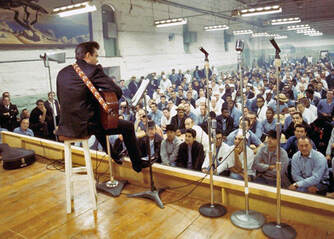 by Julian Spivey In February it was announced that the Arkansas senate had endorsed placing statues of civil rights leader Daisy Bates and legendary musician Johnny Cash at the U.S. Capitol in Washington D.C. Each state is allotted two statues at the U.S. Capitol representing and celebrating their respective states. The proposed statues for Bates, who was the first choice for the majority-Republican Senate, and Cash, the second choice, would replace current statues of James P. Clarke, Governor of Arkansas from 1895-1897 and later a Senator from the state, and Uriah Rose, a 19th century attorney. However, the Arkansas Times reported on Thursday, March 7 that the proposed statue for Cash had hit a snag. The proposal had initially passed on a 54-21 vote, according to the Times, but failed following a procedural move that requires lawmakers to be in their seats for votes to count. The proposal was sent back to committee. It seems that the biggest issue for Arkansas lawmakers in the matter is whether or not Cash deserves the honor of a statue representing the state at the U.S. Capitol, because some legislators don’t believe he was a good role model. According to the Arkansas Times, some Republicans in the state would rather the Cash statue be replaced by one for Walmart founder Sam Walton. Of course, Republicans would rather see a billionaire representing the state than a musician who stood for everybody – including prisoners, Native Americans and other downtrodden folks. Rep. Doug House said: “Mr. Cash is a great musician … but the drugs, the alcohol, the women, that kind of thing … no, I can’t hold him up to my children as a model.” Rep. House and any of his fellow legislators who don’t want to see a statue of Cash representing Arkansas at the U.S. Capitol are full of baloney. Few, if any, people are a better representation for the state and it’s because of Cash’s support of individuals who rarely received support from others – no wonder current conservatives have an issue with that. Also, Cash’s story is one of the greatest of redemption in American music history as he gave up those drugs, alcohol and other rock star vices and addictions and completely turned his life around and served God and his fellow man until his death in 2003. That makes Cash heroic. That makes him a good role model for anybody who’s ever had to overcome hardships – which Cash did many times in his life, having come from poverty as well as a child. Maybe Rep. House has lived a perfect life? I can’t help but wonder if he as a Republican supports President Donald Trump and believes him to be a good role model for children. Johnny Cash deserves this statue at the U.S. Capitol representing Arkansas, my home state, and I sincerely hope one day I’ll be able to have my photo taken with it. I have no use for a photo of myself next to a bronzed Sam Walton. I do have one message for Rep. House and his colleagues courtesy of Cash himself … by Julian Spivey 10. Crazy Little Thing Called Love by Queen Freddie Mercury’s tribute to Elvis Presley and his style of rock & roll only took him a reported five-to-10 minutes to write and it became the group’s first No. 1 in America, though it may not be as iconic these days as “Bohemian Rhapsody” and “We Will Rock You/We Are the Champions” among others. It’s a nice bit of throwback rockabilly that’s easy to sing along with. 9. My Life by Billy Joel After being released in late 1978, Billy Joel’s “My Life” peaked on the Billboard singles chart at No. 3 in early 1979. The song about seeking independence from others and setting out on your own and part of the song is about stand-up comedian Richard Lewis when Joel sings: “closed the shop, sold the house, bought a ticket to the west coast, now he gives them a stand-up routine in L.A.” 8. Oliver’s Army by Elvis Costello Elvis Costello’s “Oliver’s Army” is such an U.K. song. It was inspired by the troubles facing Northern Ireland in the ‘70s. Costello stated: “I made my first trip to Belfast in 1978 and saw mere boys walking around in battle dress with automatic weapons. The song was based on the premise ‘they always get a working class boy to do the killing.’” The Oliver of the title was British republican Oliver Cromwell and the song also takes on other imperialist conflicts around the world. The genius of “Oliver’s Army” is it’s an acidic tongued protest song done in a very approachable poppy sound. 7. Red Bandana by Merle Haggard Merle Haggard’s 1979 single “Red Bandana” wasn’t one of his biggest hits. It topped the country chart at no. 4 and Haggard had around 40 No. 1s, but it’s one of the best country road songs of its era about the life of a touring musician and trying to hold onto a relationship while doing so. The narrator knows his love is maturing and should be “somebody’s wife somewhere” and he can’t quite grow up and give her everything she needs. It’s romantic in its portrait of love that’s not heading in the same direction. 6. Whiskey River by Willie Nelson “Whiskey River” has become one of Willie Nelson’s signature tunes as the song that’s usually led-off his live shows for 40 years. The live version, released as a single in 1979, is more up-tempo and rocking than the original version of the song that he released on his 1973 album Shotgun Willie. The ’73 version was much more similar in sound to the original ballad written and released by Johnny Bush. The live version is definitely the more fun and definitive version of the song. 5. Even the Losers by Tom Petty & the Heartbreakers “Even the Losers” was one of the best tracks on Tom Petty & the Heartbreakers’ breakthrough 1979 album Damn the Torpedoes even though it was never released as a single. Even though it wasn’t a single in the U.S. it would become a staple of Petty’s and included on his “Greatest Hits” compilations. “Even the Losers” is a song for the everyman; about how everybody can get lucky sometimes and have the night of their life with a woman out of their league. 4. The Gambler by Kenny Rogers Potentially a bit overplayed on country radio formats by today, “The Gambler” by Kenny Rogers is still one of the greatest story songs ever written – with Don Schlitz writing the first of many great country classics (he also co-wrote “When You Say Nothing at All” and “Forever & Ever, Amen.” “The Gambler” tells the story of a young man and an old gambler sharing a train ride one night and the gambler giving the man his secret to life advice before fading off to his death. The song had been recorded previously by Bobby Bare and Johnny Cash, but it was Rogers’ telling of the great story that sent it to No. 1 on the country charts and top 20 crossover status in the pop world. 3. The Devil Went Down to Georgia by Charlie Daniels Band Speaking of great story songs that became crossover smashes, the Charlie Daniels Band’s iconic “The Devil Went Down to Georgia” was released in 1979 and topped the country charts while topping out at No. 3 on the pop charts. The group’s biggest recording has gone on the legendary status and to this day continues to enjoy crossover radio play on both classic country and classic rock formats. “The Devil Went Down to Georgia” tells the story of the Devil trying to steal a young man’s soul via a fiddle contest and being upset in the competition – although for 40 years now there’s been a raging debate over which fiddle solo was actually the better of the two. 2. London Calling by The Clash “London Calling” from The Clash’s 1979 album of the same name was a track that showed The Clash could do what we now refer to as classic rock just as great as they could do punk music. It’s quite disappointing actually that you don’t really hear this track – the group’s all-time best in my opinion – on classic rock format radio stations, but you will hear later hits like “Should I Stay or Should I Go.” “London Calling” is a politically charged, guitar-driven song written by Joe Strummer and Mick Jones about their concerns with the world at the time. Forty years later it’s a song that continues to be relevant in so many ways, even in ways maybe unintended by the group at the time. 1. Sultans of Swing by Dire Straits “Sultans of Swing” was first released on the Dire Straits self-titled debut album in 1978 but didn’t find much success until it was re-released in America and the U.K. in 1979 when it would reach No. 4 on the Billboard chart. The guitar-driven song tells the story of a little band knocking around clubs of London and not always getting the best reception from those in attendance. The song drew inspiration from a jazz band Dire Straits songwriter and frontman Mark Knopfler saw in a club that went by the name Sultans of Swing and found the grandiose name of the group mixed with the surroundings they played in amusing. The true highlight of “Sultans of Swings” is its two guitar solos by Knopfler that, in my opinion, are the greatest guitar solos of all-time. |
Archives
July 2024
|
